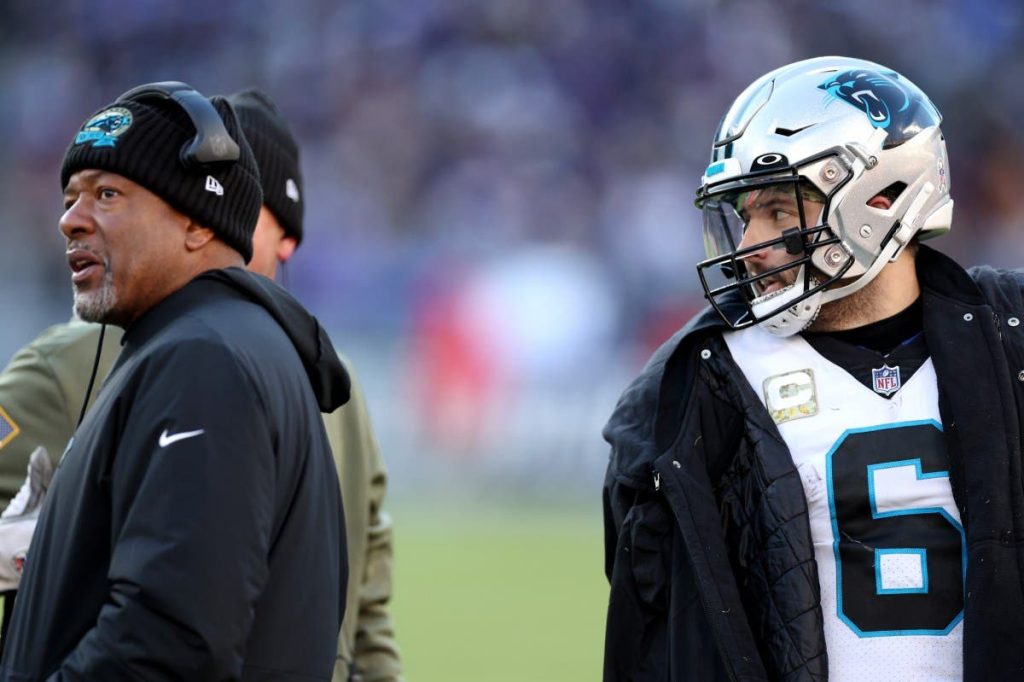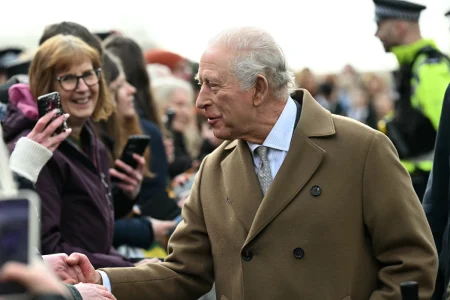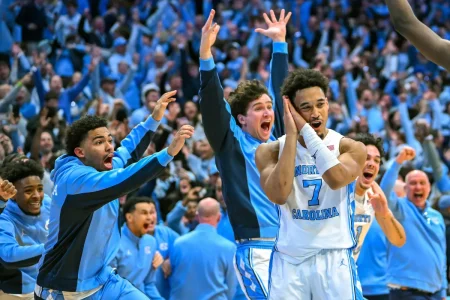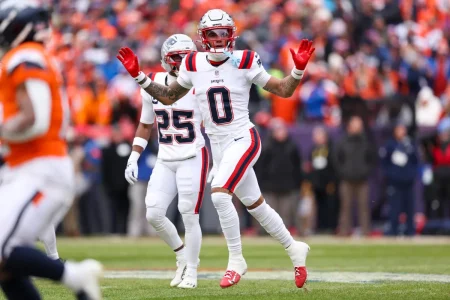Baker Mayfield’s Personal Victory: From NFL Journeyman to Buccaneers’ Star
The NFL landscape can be incredibly volatile for players, with careers often marked by a series of trades, cuts, and practice squad assignments before finding stability. Baker Mayfield epitomizes this journey, having bounced between multiple teams before finding his footing with the Tampa Bay Buccaneers. His path through the league has been anything but straightforward—starting as the first overall pick with the Cleveland Browns, where he spent four seasons trying to revive a struggling franchise, then brief and challenging stints with the Carolina Panthers and Los Angeles Rams, before finally landing in Tampa Bay where his career has experienced a renaissance. This winding road has shaped Mayfield’s perspective and added personal significance to certain matchups, as was evident in the Buccaneers’ Week 3 victory over the New York Jets.
The win against the Jets carried extra weight for Mayfield, who made it clear in post-game comments that this wasn’t just another regular-season victory. “Their D-coordinator (Steve Wilks) was the one who cut me in Carolina. A lot of stuff was personal today,” Mayfield revealed to reporters, adding that he wasn’t the only Buccaneer with something to prove, mentioning teammate Haason Reddick’s history with the Jets as well. This candid admission offered a glimpse into the emotional undercurrents that often flow beneath the surface of NFL games—where professional athletes carry memories of perceived slights and rejections that fuel their competitive drive. For Mayfield, facing off against Wilks, who had served as interim head coach during his brief time with the Panthers, represented an opportunity to prove his worth to someone he believed had undervalued him.
The accusation that Wilks was responsible for Mayfield’s departure from Carolina didn’t go unanswered. When questioned by reporters about Mayfield’s claim, Wilks pushed back firmly, highlighting the limited authority he held as an interim coach. “I don’t think an interim coach has much say over personnel. If that were the case, I wouldn’t have gotten rid of our best player, Christian McCaffrey,” Wilks stated, referencing the Panthers’ decision to trade their star running back during the same season. His response underscored the complex power dynamics within NFL organizations, where interim coaches typically serve as temporary stewards rather than decision-makers with full control over roster construction. By invoking the McCaffrey trade—a move that surprised many across the league—Wilks attempted to distance himself from the decision to part ways with Mayfield.
The back-and-forth between Mayfield and Wilks illustrates a common dynamic in professional sports, where perceptions of responsibility for career-altering decisions can differ dramatically between players and coaches. From Mayfield’s perspective, Wilks represented the face of the organization that had given up on him, regardless of the exact chain of command that led to his release. For players, these narratives become part of their professional identity and motivation, transforming ordinary games into personal quests for vindication. The reality of NFL front office operations suggests that major personnel decisions typically involve general managers and team owners, with coaches—especially interim ones—having varying degrees of input depending on the organization’s structure. Nevertheless, the human tendency to associate individuals with institutional decisions creates these tensions that can last throughout careers.
What makes Mayfield’s journey particularly compelling is how he has managed to rebuild his career after these setbacks. After being cast aside by the Browns despite leading them to their first playoff win in decades, struggling during a brief stint with the Panthers, and serving as a late-season replacement for the Rams, Mayfield found stability in Tampa Bay. Taking over for the retired Tom Brady—arguably the greatest quarterback of all time—presented an enormous challenge, yet Mayfield has thrived in the role. His success with the Buccaneers serves as a testament to his resilience and ability to overcome the adversity that has defined much of his NFL career. The victory over the Jets and Wilks’ defense represented more than just another win in the standings; it was a personal affirmation of Mayfield’s journey and his ability to prove doubters wrong.
Regardless of who actually made the decision to move on from Mayfield in Carolina, the quarterback clearly used that perceived slight as motivation in preparing for and playing against the Jets. This psychological element of sports—where athletes transform rejection into fuel for future success—is one of the most human aspects of professional competition. For Mayfield and the Buccaneers, the win improved their record and positioned them well in the early-season standings, but it also provided something less tangible yet equally valuable: validation. As Mayfield continues his career resurrection in Tampa Bay, games like this serve as milestones in his personal narrative of perseverance and redemption in a league where second chances aren’t guaranteed and third or fourth ones are even rarer. His story remains one of the more compelling narratives in the NFL—a former first overall pick finding his way back to prominence after being written off by multiple organizations.














